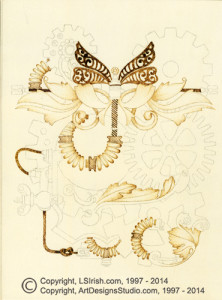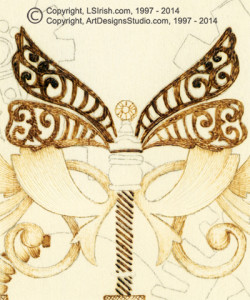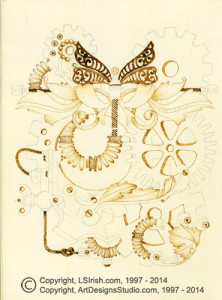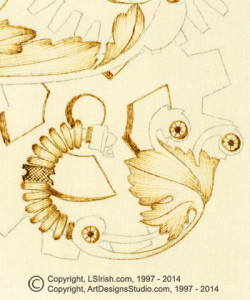Step 3: I have decided that I want to make the leaves my palest tonal value element in the burning. They are natural, organic elements in a hard metal design. So I am ready to decide what elements will be my darkest tonal values. Creating a few extremely dark areas in contrast to the palest tones establishes my tonal value range. All other elements in the design will be worked in some tonal value between these two points.
Since my dragonfly is clearly a mechanical construction I have chosen to work the wings and threaded pipe tail in my black tones. This burning was done on a setting of 5 with tight scrubbie strokes to fill in the entire area.
To pull the darkest tone into some other area of the design I also have worked the electrical cords in tight scrubbie strokes at the temperature setting of 5.
I can add more pale tone areas and black tone elements as the burning develops. This step is simply to establish the two end points of my tonal scale – the palest coloring and the darkest coloring.
 |  |
Step 4: At this point I have established my repetitive elements and my pale and black tonal range. Next I need to determine where my depth perspective for the pattern will fall. The gears shown in the pattern are flat two dimensional gears. For my burning I want three dimensions to give an impression of thickness to the metal. I have worked a medium sepia value using a temperature setting of 4 to create an inside edge to the openings and holes of the gears. All of these areas fall on left or lower left of the gear outline. That inside edge adds the third dimension on thickness to the gears.
During this step I have worked the screws and rivets using a temperature setting of 4 with a center dot of dark tonal value worked at a 5 setting inside of the rivets.
 |  |